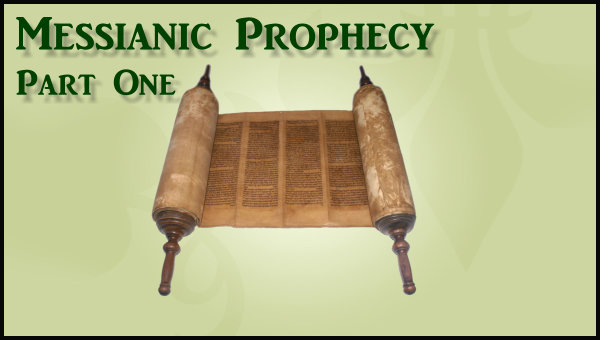By Tyson Thorne

Last week we closed our series on the Minor Prophets and resolved that Prophecy is unique among all the forms of future-telling. We defined prophecy as the departing of divine knowledge regarding future events. Unlike fortune-telling, this knowledge of future events comes directly from God rather than stars, cards or demons. Unlike foreknowledge, the outcome and provisions of the prophecy is set by God. Because prophecy is of God and not left open to interpretation of entrails or tea leaves or lines on one’s hands it is never wrong. In fact, as is commonly known, in the early days of Israel if someone claiming to be a prophet of God was ever wrong in one of their predictions they were put to death. The reason for such drastic punishment is clear, the self-proclaimed prophet was not speaking for God.
For this reason we should expect that every prophecy recorded in the Bible is true and either has, or will come to pass. This has frightening implications, but let’s start with something on a joyous note and that can be examined and proven: Messianic Prophecies.
Details of the birth of the Messiah are scattered throughout the Old Testament. We are told that he would be born in Bethlehem (Micah 5:2) of a virgin (Isaiah 7:14) as a descendant of Abraham (Genesis 12:1-3), of the tribe of Judah (Genesis 49:10), and of the house of David (2 Samuel 7:12-16). It was predicted that a great slaughter of Jewish children would follow (Jeremiah 31:15) but that the Messiah would escape to Egypt (Hosea 11:1). All these prophecies have already been fulfilled in the life of Yeshua (Jesus) in the following New Testament passages (many of which are also confirmed by the first century historian Josephus): Matthew 2:1; Matthew 1:21-23; Matthew 1:1 and Galatians 3:16; Luke 3:23, 33 and Hebrews 7:14; Matthew 1:1; Matthew 2:16-18; Matthew 2:14-15. It is no surprise that Matthew includes these details as he was writing to a Jewish audience who would understand their significance.
Details surrounding the Messiah’s ministry are also foretold in Old Testament books. We are told that the Messiah would be announced and identified by a contemporary prophet (Isaiah 40:3-5 and Malachi 3:1) and would be anointed not by the traditional holy oil but by the Spirit of God (Isaiah 11:2). His message would be one of good news (Isaiah 61:1), that he would perform miracles (Isaiah 35:5-6) and cleanse the temple (Malachi 3:1). The location of his ministry is foretold as Galilee (Isaiah 9:1) and that though he would be rejected largely by his people (Psalm 118:22) he would enter the city of Jerusalem as a king (Zechariah 9:9) exactly 173,880 days from the decree to rebuild Jerusalem (Daniel 9:25) a timeframe that puts the coming of the Messiah in the early part of the first century AD. Once more we see these prophecies align with the person of Jesus in the following New Testament passages: Matthew 3:1-3; Matthew 3:16-17; Luke 4:14-21; Matthew 9:35; Matthew 21:12-13; Matthew 4:12-16; Matthew 21:4-9; 1 Peter 2:7; 1 Peter 2:7; Matthew 21:4-11).
These 16 fulfilled prophecies about the Messiah are only the beginning, and we’ll examine more of them tomorrow. One might find it strange that, as important as Messiah is to Judaism, that there is no single repository of knowledge about him in the Torah. If the Old Testament Scriptures were the work of man alone, I believe such a book would have been included. As it is the work of God, however, it makes sense that these revelations would unfold as God saw fit.
|
|
